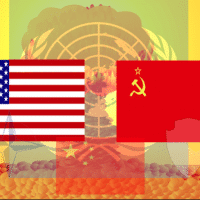-
Alienation and Freedom
For academics working on Frantz Fanon Alienation and Freedom is no less than a gift. With the publication of this book we finally have the complete available works of Fanon in English. Aptly divided into neat sections – Theatre, Psychiatric Writings, Political Writings, Publishing Fanon, Frantz Fanon’s Library and Life.
-
Gandhi, Marx & the ideal of an ‘unalienated life’
In this in-depth interview, Akeel Bilgrami speaks on a wide range of issues of intellectual relevance and contemporary importance such as the relationship between Gandhi and Marx, issues of modernity, Chomsky’s philosophy, personal influences, academic philosophy in India, secularism, caste and current politics in India, Hindutva politics and the criminal threat of the present government, the Hindutva political challenge and ways of resistance, and the importance of Left politics.
-
Fred Hampton’s death is just one example of the Government’s covert disruption of Black Lives
The police lied and said that when they knocked on the door and announced themselves, the Panthers immediately began shooting at them. This was later proven to be a lie.
-
Antonio Gramsci and the Modern Prince
In this period of global crises and ferment, radical and revolutionary activists are reaching for modes of organization and political practice that can help advance their struggle for human liberation. For growing numbers, the political and organizational perspectives of Vladimir Ilyich Lenin are becoming a pole of attraction–providing an increasingly desired coherence and revolutionary edge.
-
Dating brokers: the dating industry surrounding dating profiles
In May 2017 artist Joana Moll, alongside Tactical Tech, purchased 1 million online dating profiles for 136€ from U.S.Date, a supposedly U.S.-based company that trades in dating profiles from all over the globe.
-
California’s wildfire and climate change warnings are still too conservative
Another Hot, Dry Year Is Fueling The State’s Deadliest, Most Destructive Wildfire. Scientists Say Wildfires Here Are Consistently Surpassing Their Projections.
-
Is the answer really ‘in our genes’?
RICHARD DAWKINS, author of one of the best known texts on human nature, The Selfish Gene, declares we are “machines created by our genes”–that “[w]e are survival machines–robot vehicles blindly programmed to preserve the selfish molecules known as genes.”
-
Socialism frightens Trump White House, publishes ‘red scare’ just before midterm elections
The White House’s Council of Economic Advisers (CEA) released a report earlier this week on “The Opportunity Costs of Socialism,” apparently based on the fact that “coincident with the 200th anniversary of Karl Marx’s birth, socialism is making a comeback in American political discourse,” even though Marx’s birth was in May (1818).
-
The most potent weapon in the hands of the oppressor is the mind of the oppressed
Mike Peters explores the legacy of Steve Biko, a radical who spent his life fighting for Black liberation and for the overthrow of the Apartheid government in South Africa.
-
Bolsonaro’s son threatens violence if his father is blocked from Brazil’s presidential race
FAR-RIGHT Brazilian presidential candidate Jair Bolsonaro’s son has threatened violence against the country’s Supreme Electoral Court (TSE) if it blocks his father from running in Sunday’s second-round poll.
-
Deadly, cowardly U.S. drone wars in Africa
War is romantic only when it is limited to the confines of a sanitized imagination. Movies that portray heroic soldiers vanquishing demonic enemy combatants or rescuing fallen comrades may whip up jingoistic war fever, but horrific images of real children and elders maimed, scarred, dismembered and killed during armed conflicts have the power to end wars.
-
The Domestication of Critical Theory – Michael J Thompson
What passes for Critical Theory today is nugatory; it is philosophically weak, and politically compromised. In Thompson’s words, the project has ‘abandoned the search for the real mechanisms and sources of social power’.
-
“These days shall also pass, like a thousand days have before them”
Since the extreme right-wing government of Bharatiya Janata Party (BJP) came to power in 2014, there has been an increasing crackdown on political and student activists, who are often branded as Maoists and anti-nationals.
-
Capitalism vs. water
Capitalism vs. water.
-
In memoriam: Samir Amin
Samir Amin, the renowned Marxist thinker and economist, passed away on August 13 in Paris. Born in Cairo on September 3, 1931, to an Egyptian father and a French mother, he had his initial education in Egypt before moving to Paris where he obtained his doctorate in Political Economy.
-
The origins of women’s oppression–a defence of Engels and a new departure
Frederick Engels’ book The Origin of the Family, Private Property and the State (hereafter The Origin) was published in 1884. In it he argued that early humans had lived in non-hierarchical societies in which women were not oppressed.
-
Gender as colonial object
The spread of Western gender categories through European colonization.
-
Democratic Party politics 101 with Alexandria Ocasio-Cortez and the corporate media
Some who read my writing may ask, “why don’t you criticize the Republicans as much as you do the Democrats?” My response to such a question is that it should be obvious by now which of the two corporate parties currently holds the Black polity and working class “constituencies” generally in a state of political captivity.
-
Craig Murray: Detente bad–Cold War good
Political memories are short, but just 15 years after Iraq was destroyed and the chain reaction sent most of the Arab world back to the dark ages, it is now “treason” to question the word of the Western intelligence agencies, which deliberately and knowingly produced a fabric of lies on Iraqi WMD to justify that destruction.
-
Race, gender and social reproduction in British capitalism, 1945-78
How can we understand the way that capitalism comes to be gendered and racialised?





![[New Release] Dating Brokers - the dating industry surrounding dating profiles](https://mronline.org/wp-content/uploads/2018/12/New-Release-Dating-Brokers-the-dating-industry-surrounding-dating-profiles-200x200.jpg)











![By Architect of the Capitol - Architect of the Capitol information webpage [1], Public Domain, https-::commons.wikimedia.org:w:index.php?curid=1365273](https://mronline.org/wp-content/uploads/2018/07/By-Architect-of-the-Capitol-Architect-of-the-Capitol-information-webpage-1-Public-Domain-https-commons.wikimedia.orgwindex.phpcurid1365273-200x200.jpg)


